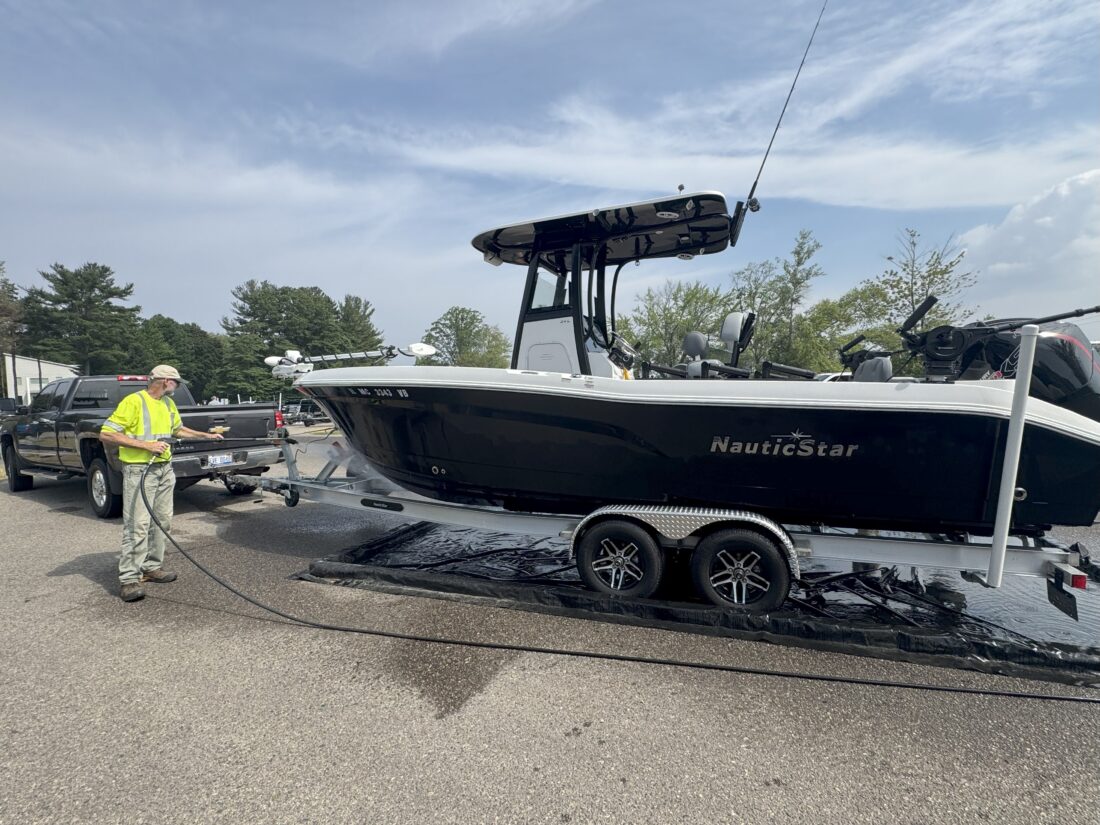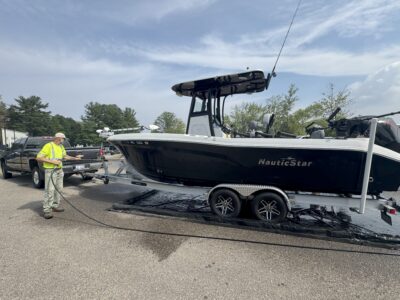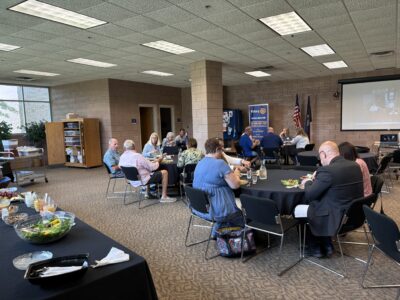DNR invasive species prevention boat wash program finishing summer season

Courtesy Photo Michigan Department of Natural Resources staff member Jesse Teunissen uses the portable boat wash on a trailered boat to ensure no invasive species will travel with it to the next lake.
The Michigan Department of Natural Resources’ mobile boat wash program is completing a busy summer season, visiting public access sites in 19 counties, engaging with more than 800 people and washing over 300 boats to help stop the spread of aquatic invasive species. The two-person crew operates each year from Memorial Day through Labor Day.
The crew’s last weekend will be spent in northern Michigan. They will be at the Clare Welcome Center on U.S. 127 today, then at Black Lake on Friday, Mullett Lake on Saturday, and Burt Lake on Sunday, offering free and fast boat washes at boating access sites to prevent the spread of aquatic invasive species.
“Plant fragments attached to boats or trailers can move invasive species to a new lake,” said Luc McPherson, DNR boat wash technician. “It’s easy to spend a few minutes to clean, drain and dry your equipment to protect your favorite fishing and boating lakes.”
Michigan law requires boaters to remove aquatic plants and debris before leaving an access site and to pull drain plugs and drain all water from bilges, ballast tanks and live wells. Unused bait should be disposed of in the trash, not the water.
Throughout the season, the crew also deploys a mobile CD3 station – a waterless kiosk equipped with tools to help boaters clean, drain, dry and dispose. Throughout the summer, the station is moved from lake to lake in southwest Michigan to help boaters comply with AIS prevention regulations and recommendations.
Invasive plants like starry stonewort and Eurasian watermilfoil and animals like zebra and quagga mussels can foul equipment, change the habitat and choke out native Michigan species.
“Most people don’t pay attention to invasive species, but they notice when their favorite places are suddenly covered in plants,” said Jesse Teunissen, DNR boat wash technician. “But luckily, to clean, drain and dry your boats, you don’t have to know how to identify invasives. If you remove all of it, nothing can hitchhike with you to the next location.”
The DNR’s mobile boat wash program is funded by a U.S. Environmental Protection Agency-administered grant from the Great Lakes Restoration Initiative, a federal effort that accelerates protection and restoration across the Great Lakes basin.
Michigan’s Invasive Species Program is cooperatively implemented by the Department of Environment, Great Lakes, and Energy, the Department of Natural Resources, and the Department of Agriculture and Rural Development.




